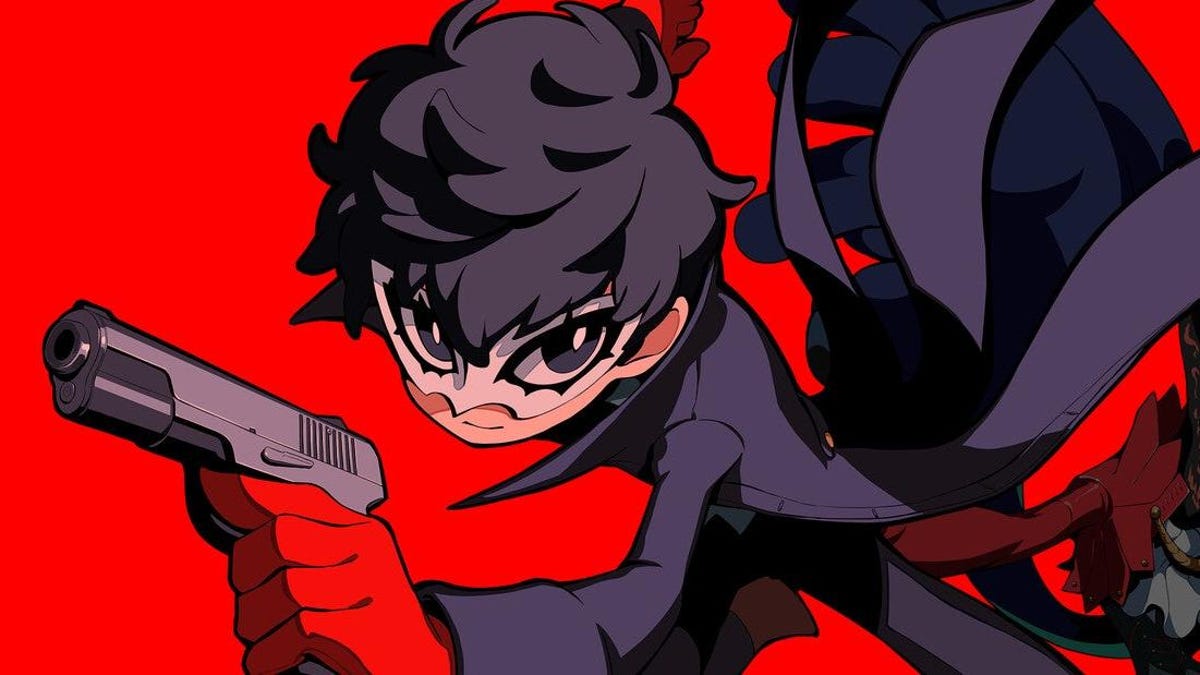Every Friday, A.V. Club staffers kick off the weekend by taking a look at the world of gaming, diving in to the ideas that underpin the hobby we love with a bit of Game Theory. We’ll sound off in the space above, and invite you to respond down in the comments, telling us what you’re playing this weekend, and what theories it’s got you kicking around.
Happy Thanksgiving, here’s Brian Cox's favorite line from Succession
Persona 5 Tactica doesn’t have Rabbids in it. But it could.
Atlus’ latest entry in its long-running, highly mutable series of Japanese role-playing games is, after all, pretty clearly modeled after Mario + Rabbids, Nintendo’s bizarre, and bizarrely successful, 2014 effort to extract the turn-based tactical combat of games like XCOM and export it to a less hardcore environment. Tactica doesn’t go quite as kid-friendly as Nintendo’s games did—although the character designs from Persona 5 have been given a far more cartoonish look than what they sported in the base game—but that basic idea, of taking something brutally rigorous and punishing and rendering it a bit more palatable, without sacrificing the core gameplay idea, is on obvious display.
The result is brightly engaging (if a little less deep than a long-time fan of the franchise might hope for), especially if you’re getting it free through Microsoft’s GamePass, where it launched as a Day One title. (Having just recently upgraded from a computer I bought 10 years ago at a literal junkyard, to an actually functional machine, GamePass has been a sort of PC buffet for me over the last month.)
The game’s basic premise sees the Phantom Thieves—teenage revolutionaries who break into villain’s “cognitive worlds” to steal the evil from their hearts, if you’re not familiar with the original game—getting sucked into yet another extra-dimensional realm, this time loosely and cartoonishly patterned on revolutionary-era France. After most of the team gets brainwashed by Evil Muppet Marie Antoinette, team leader Joker and his talking cat pal Morgana team up with a young revolutionary named Erina to battle through a series of stages to free the cognitive world. Which ably sets the stage for a bunch of battles that slowly ramp up in complexity, often by introducing new threats that short-circuit tried-and-true tactics like firing from cover, or overwhelming enemies with your characters’ magical skills.
It’s all fairly breezy and enjoyable, with just enough edge to it to keep things from feeling rote. (Don’t think you can get away with exposing your troops outside of cover, for instance, even early on—the game will punish you for it.) But we do find ourselves wishing Atlus had had the courage to steal more from XCOM itself, rather than its kid-friendly derivatives—especially that series’ willingness to let players screw up in meaningful ways. As fun as 2012’s XCOM: Enemy Unknown and sequel XCOM 2 could be moment-to-moment, a huge part of their appeal was the way they allowed players to make genuinely brutal mistakes that could wreck hours of progress. It gave each moment a sense of stakes, one that’s pretty seriously lacking in Tactica. The Persona games have typically been the least mechanically rigorous of the wider Shin Megami Tensei games, but seeing the studio that published punishing tactics games like the SMT: Devil’s Survivor titles ease off on the gas is a bit of a disappointment. (And, hey, it’s not like XCOM developer Firaxis hasn’t been lured in this direction as well; look to the franchise’s most recent title, 2021’s streamlined and simplified Chimera Squad, for a similar, if less drastic, softening of the edges.)
All that being said, Tactica is fun for what it is: A cheerful, story-forward spin on turn-based tactical combat with enough little quirks (most notably a system that lets you ambush multiple enemies at a time with proper unit placement) that it keeps you from sticking to mere “pop up and shoot” gameplay. If you already have affection for these characters, it’s a pretty obvious no-brainer; if you’re not already a Persona 5 fan, and you’re looking for a tactics game to scratch that itch, well, it’s probably a bit too much of a less-brainer to totally work.
